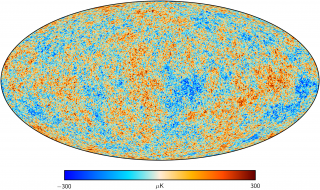Bibcode
Akrami, Y.; Argüeso, F.; Ashdown, M.; Aumont, J.; Baccigalupi, C.; Ballardini, M.; Banday, A. J.; Barreiro, R. B.; Bartolo, N.; Basak, S.; Benabed, K.; Bernard, J.-P.; Bersanelli, M.; Bielewicz, P.; Bonavera, L.; Bond, J. R.; Borrill, J.; Bouchet, F. R.; Burigana, C.; Butler, R. C.; Calabrese, E.; Carron, J.; Chiang, H. C.; Combet, C.; Crill, B. P.; Cuttaia, F.; de Bernardis, P.; de Rosa, A.; de Zotti, G.; Delabrouille, J.; Delouis, J.-M.; Di Valentino, E.; Dickinson, C.; Diego, J. M.; Ducout, A.; Dupac, X.; Efstathiou, G.; Elsner, F.; Enßlin, T. A.; Eriksen, H. K.; Fantaye, Y.; Finelli, F.; Frailis, M.; Fraisse, A. A.; Franceschi, E.; Frolov, A.; Galeotta, S.; Galli, S.; Ganga, K.; Génova-Santos, R. T.; Gerbino, M.; Ghosh, T.; González-Nuevo, J.; Górski, K. M.; Gratton, S.; Gruppuso, A.; Gudmundsson, J. E.; Handley, W.; Hansen, F. K.; Herranz, D.; Hivon, E.; Huang, Z.; Jaffe, A. H.; Jones, W. C.; Keihänen, E.; Keskitalo, R.; Kiiveri, K.; Kim, J.; Kisner, T. S.; Krachmalnicoff, N.; Kunz, M.; Kurki-Suonio, H.; Lähteenmäki, A.; Lamarre, J.-M.; Lasenby, A.; Lattanzi, M.; Lawrence, C. R.; Levrier, F.; Liguori, M.; Lilje, P. B.; Lindholm, V.; López-Caniego, M.; Ma, Y.-Z.; Macías-Pérez, J. F.; Maggio, G.; Maino, D.; Mandolesi, N.; Mangilli, A.; Maris, M.; Martin, P. G.; Martínez-González, E.; Matarrese, S.; McEwen, J. D.; Meinhold, P. R.; Melchiorri, A.; Mennella, A.; Migliaccio, M.; Miville-Deschênes, M.-A.; Molinari, D.; Moneti, A. et al.
Referencia bibliográfica
Astronomy and Astrophysics, Volume 619, id.A94, 22 pp.
Fecha de publicación:
11
2018
Revista
Número de citas
28
Número de citas referidas
24
Descripción
This paper presents the Planck Multi-frequency Catalogue of Non-thermal
(i.e. synchrotron-dominated) Sources (PCNT) observed between 30 and 857
GHz by the ESA Planck mission. This catalogue was constructed by
selecting objects detected in the full mission all-sky temperature maps
at 30 and 143 GHz, with a signal-to-noise ratio (S/N)> 3 in at least
one of the two channels after filtering with a particular Mexican hat
wavelet. As a result, 29 400 source candidates were selected. Then, a
multi-frequency analysis was performed using the Matrix Filters
methodology at the position of these objects, and flux densities and
errors were calculated for all of them in the nine Planck channels. This
catalogue was built using a different methodology than the one adopted
for the Planck Catalogue of Compact Sources (PCCS) and the Second Planck
Catalogue of Compact Sources (PCCS2), although the initial detection was
done with the same pipeline that was used to produce them. The present
catalogue is the first unbiased, full-sky catalogue of
synchrotron-dominated sources published at millimetre and submillimetre
wavelengths and constitutes a powerful database for statistical studies
of non-thermal extragalactic sources, whose emission is dominated by the
central active galactic nucleus. Together with the full multi-frequency
catalogue, we also define the Bright Planck Multi-frequency Catalogue of
Non-thermal Sources (PCNTb), where only those objects with a S/N > 4
at both 30 and 143 GHz were selected. In this catalogue 1146 compact
sources are detected outside the adopted Planck GAL070 mask; thus, these
sources constitute a highly reliable sample of extragalactic radio
sources. We also flag the high-significance subsample (PCNThs), a subset
of 151 sources that are detected with S/N > 4 in all nine Planck
channels, 75 of which are found outside the Planck mask adopted here.
The remaining 76 sources inside the Galactic mask are very likely
Galactic objects.
The catalogues are only available at the CDS via anonymous ftp to http://cdsarc.u-strasbg.fr
(ftp://130.79.128.5) or via http://cdsarc.u-strasbg.fr/viz-bin/qcat?J/A+A/619/A94
Proyectos relacionados

Anisotropía del Fondo Cósmico de Microondas
El objetivo general de este proyecto es determinar y estudiar las variaciones espaciales y espectrales en la temperatura del Fondo Cósmico de Microondas y en su Polarización en un amplio rango de escalas angulares que van desde pocos minutos de arco hasta varios grados. Las fluctuaciones primordiales en la densidad de materia, que dieron origen a
Rafael
Rebolo López